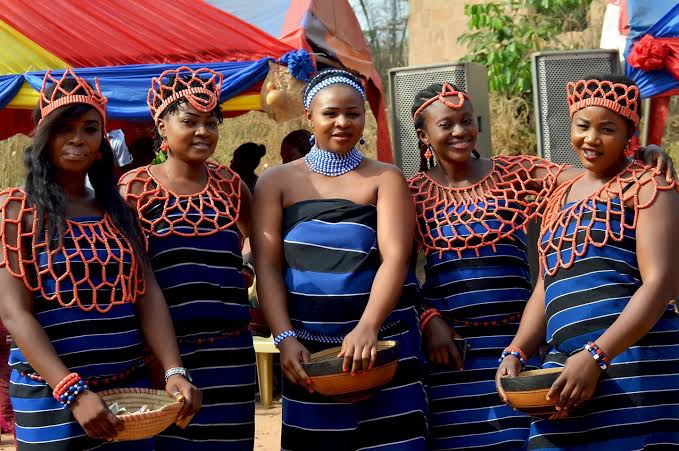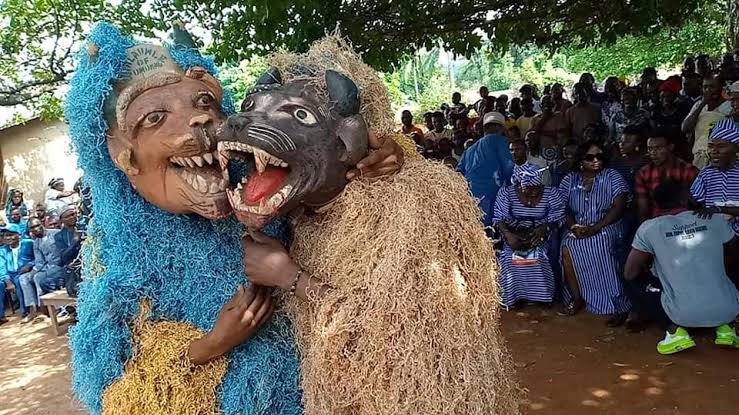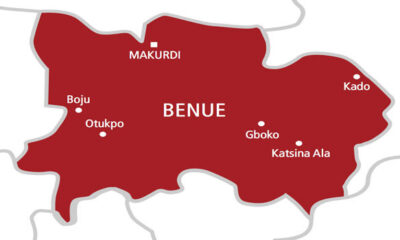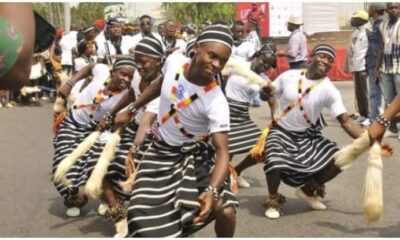Special Features
Unravelling the history, cultures of Igede tribe in Benue State

News360 Nigeria provides a brief history and insights about the Igede ethnic group in Benue State.
The Igede ethnic group in Benue State is notable for being one of the most sophisticated.
Their social life is based on fundamental principles and ethics like equality, sacrileges, hard work, honesty, and tolerance.
The majority of Igede people have dark skin and lack obvious tribal markings.
Their languages are spoken in Cross River State, Benue State, and Ekiti State. They are the third largest ethnic group in Benue State and make up between 300,000 and 500,000 of all Nigerians.
History
Sabon Gida Ora in the modern state of Edo can be considered their place of origin. Agba, a prominent chief in Sabon Gida Ora, is said to be their ancestor.
The Igede people and the Ora natives fought, which led to their migration from their ancestral homeland to what is now Benue State.
Location
The Igede people live in Benue State, Ekiti State, Cross River State, and Idoma, Tiv in Benue State, Ekajuk, Yala, and Ezekwe in Cross River State, and Izzirsrte in Ebonyi State.
Language
The “Igede language” is spoken by the Igede people of Benue state.
The Igede language is a member of the Niger-Congo languages and the Benue-Congo subgroup family.
Occupation
The majority of the Igede are farmers, potters, and warriors. Their main crops are yams, groundnuts, cassava, and maize.
For the Igede people, yam continues to be the most advantageous and cost-effective crop, particularly when it is ground.
Beliefs
The Igede people believe in God and gods. The ultimate deity known as Ohe, or “great spirit,” is connected to all things on Earth and is the one who created the world and everything in it.
Additionally, they hold male children (anyi aleng) in great regard as stewards of culture and members of the family who uphold the family line. Igede custom prohibits women from owning landed properties.
Culture and traditions
The Igede people have a rich cultural history that encompasses a wide range of music, dance, and artistic expression.
In Igede land, children are typically naked from birth until puberty (when they were thought to have something to conceal), although they do wear waist-girdling jewelry, such as beads, for health purposes.
Food
Food is a necessary aspect of the Igede culture of the Igede people.
The different foods include mashed yam (iju), banbaranut (egbeyi), foofoo (akpu), and yam (iju).
Festivals
The New Yam Festival (Igede Agba) is the most notable celebration that distinguishes the Igede people.

Every year, people celebrate the New Yam festival (Igede Agba) to commemorate the abundant harvest season.
Marriage
The Igede people practice polygamy, and a man is allowed to marry more than one wife.
A bride price must be paid by the groom’s family to the bride’s family in order for the marriage to consummate. Marriage ceremonies are typically elaborate, involving the entire community.

Igede couple in their native attire
Igede Attire
The Igede people’s traditional clothing is a stunning combination of three colors: black represents agriculture, white represents peace, and blue represents purity and unity.
They also wear beads, bracelets, and anklets.


























